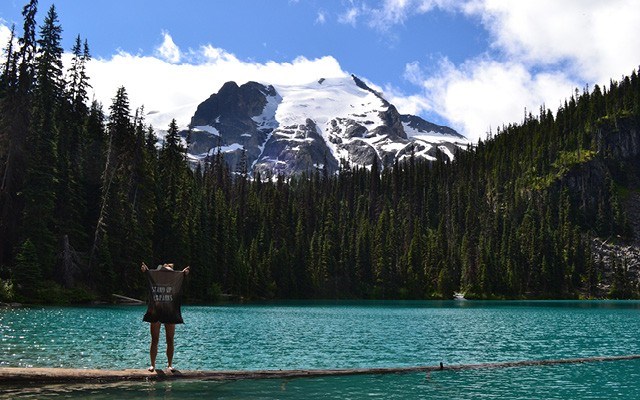B.C.'s government is hiring park rangers. And while environmental groups are welcoming the new hires, they say more are needed.
According to the Ministry of Environment, BC Parks hired 28-full-time senior park ranger positions this summer, 25 of which are new positions.
The hires are part of the BC Parks Future plan. Started under the province's then-Liberal government in 2016, the plan puts aside $35 million over the next three years to strengthen conservation in parks, $22.9 million over five years for additional campsites, and $10 million for the BC Parks Foundation, a charitable organization that uses government money and private donations to fund projects and acquire land.
BC Parks' annual budget is $31 million.
Environmental groups, however, are calling on the government to add to that — significantly. The Canadian Parks and Wilderness Society (CPAWS) wants the government to increase yearly funding to $60 million per year, continue annual increases to eventually match levels of leading Canadian parks agencies like Parks Canada and Alberta Parks, and increase the number of rangers to match pre-2000 staffing levels.
The Wilderness Committee is asking for even more. One hundred million dollars a year "would allow BC Parks to raise the number of full time rangers 10 fold and begin to repair neglected park buildings, parking lots, trails, bridges and campsites — as well as construct new ones," wrote Joe Foy, a spokesperson, in an email.
In a Sept. 11 budget update, B.C. Finance Minister Carole James made no mention of BC Parks.
"I would love to say I was surprised," said Tori Ball, a spokesperson for CPAWS who said the organization hopes that the government will commit to increased funding in the spring, when it releases its budget for the coming year.
The money set aside by the BC Parks Future Plan is "not enough," said Ball. "Core funding" needs to be increased.
Rangers, "play a vital role in the maintenance and operation of the entire parks system," she said, from educating the public on leave-no-trace principals, to guarding against wildlife human conflict.
"They should be there to educate people, so they don't have to be cleaning up after them."
According to CPAWS and the Wilderness Committee, the Liberal government underfunded parks for years. "They weren't a priority for the previous government," explained Ball.
A key barometer used to judge funding is park rangers, though it is difficult to get clear numbers on how many there are at a given time. Over the years, the government has been reticent to divulge clear numbers and changed the criteria of who qualifies as one.
Over the past five years, traffic in Sea to Sky parks has risen sharply. According to the Ministry of Environment, in 2016-17, 100,000 people visited Joffre Lakes Provincial Park, for example.
The increased traffic has resulted in major problems with trash. In June, two hikers collected 50 pounds of it, prompting a public outcry when photos of the garbage went viral.
In July, the Ministry of Environment said there were two seasonal park rangers working in the Pemberton area and six seasonal park rangers for the Squamish area in an email to Pique.
The Pemberton area includes 14 protected areas, including Joffre Lakes. The ministry said at the time it was planning on converting the two seasonal positions to two year-round positions and to add a third seasonal position.
A request to the ministry to confirm if these changes have been made was not answered by deadline.
Ball and others are crossing their fingers, waiting for spring's budget and a commitment from B.C.'s new government on park staffing.
Parks, said Ball, are a huge part of British Columbia's identity.
"(They are) vital to keeping our economy and people happy," she said.




